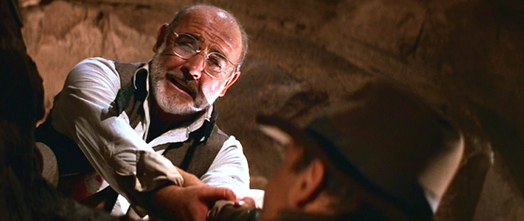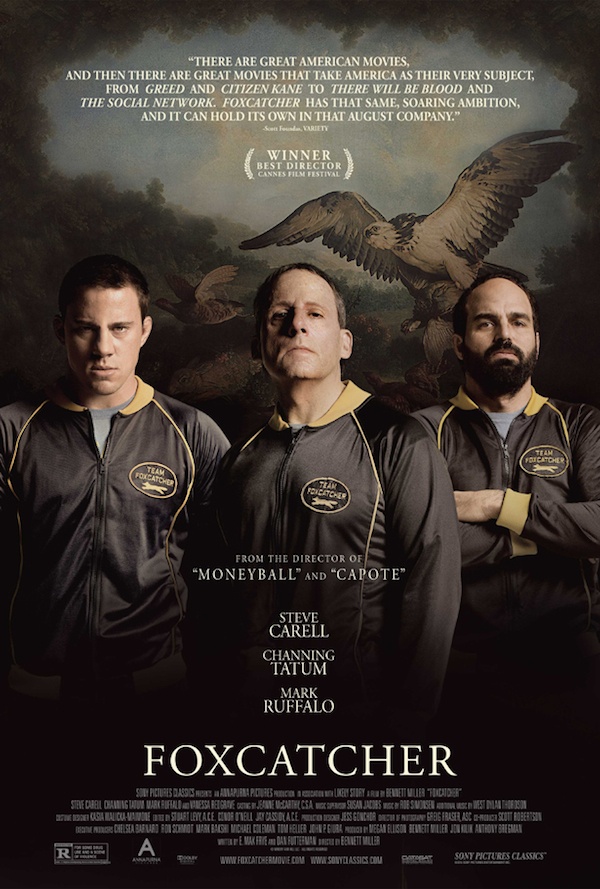This is a new column I’m going to try entitled “I Disagree,” wherein I will take a position on an issue that may be rather unpopular. While the very nature of the column is argumentative and alternative, my goal is not to come across as a hipster doofus taking contrary positions for the sake of self-aggrandizement. Part of the way we understand each other as people is through the processing and discussion of art, and this column is in no way designed to belittle those who hold opinions antithetical to my own.
Raiders of the Lost Ark holds a special place in the annals of untouchable cinema. The world’s introduction to film icon Indiana Jones has a following roughly as voracious in defense as that of Beyoncé Knowles; criticism is not tolerated, and any dissent is taken as a personal attack on the patron. Raiders is surely the best movie in the franchise, right? …
Well, who knows? We could try to assign ‘objective’ qualities to writing, direction, and production and analyze those efforts, but that would be altogether boring. All I can say is that it’s not my favorite; that title goes to The Last Crusade. Let’s get ready to rumble.
Don’t get me wrong- I like Raiders, who couldn’t? Harrison Ford runs through jungles and kills Nazis. Sign me up! The film is a blockbuster classic, and it’s tons of fun, but it just doesn’t speak to me on anything but a superficial level.
I didn’t grow up with Indiana in the way that so many Americans from the previous generation did. Truth be told, Kingdom of the Crystal Skull was the first Indy film I remember seeing. I don’t break with the mainstream in acknowledging that Crystal Skull is a failure of epic proportions (Really guys? Aliens?), but I bring up the point to emphasize my lack of devout affection for the character. I grew up on George Lucas’ preceding blockbuster trilogy; Harrison Ford is Han Solo to me, not everyone’s favorite whip-slinging archaeologist.
Coming into the original trilogy unattached, and watching the three films back-to-back-to-back in the course of one evening, Raiders does not resonate with me the same way that The Last Crusade does. I find Raiders to be devoid of the human connection that I require in order for an action/adventure film to rise above in-the-moment pleasure and reach the level of lasting impact. Raiders is action-heavy and plot driven, which is great for an adventure flick, but I find myself longing for a deeper connection to these characters.
I believe that Marion is supposed to serve as an in-road to the audience’s emotional attachment to the plot. Marion is a beloved female lead, and rightfully so; she’s smart, and crafty, and pretty, and strong. But Harrison Ford, in his typical fashion, plays Indiana as a stoic mirror, and Marion reflects his lack of believable emotions. When we are first introduced to the couple in the Himalayas of Nepal, they yell at each other in such a cold manner that I momentarily check out. I don’t believe for a single second that these two have had a relationship in the past. In a hallmark scene of robotic acting, I am left unmoved. This is emblematic of a greater flaw I find with the film: none of the characters are very well developed. Who IS Indiana Jones? What motivates him? What is his code of ethics?
I posit that we don’t find out until The Last Crusade.
I have heard it mentioned before that one of the great aspects of Raiders is that it sets up the dichotomy of the protagonist wishing to preserve artifacts for the sake of historical integrity while the antagonist is merely after monetary compensation. I completely disagree. Indiana is shown multiple times in this film discussing financial rewards for his findings. In the final scene, Indy and Marcus make the case that the lost ark should be available to researchers for the purpose of study, but his motives for venturing into the field up to this point of the film are not clearly established as being purely academic. In The Last Crusade, however, a young Indiana (played by River Phoenix) steals an artifact from a wealth-driven villain and loudly proclaims that the piece “should be in a museum.” This statement is integral to our understanding of Indiana Jones as a character, in a way that no piece of dialogue is in Raiders.
Another strong point for The Last Crusade, to me, is that the plot feels like it has real, jarring stakes. I understand as an audience member that the Raiders Nazis are evil, but to what end is this battle raging? The ark is shrouded in mystery (in an effort to make a lasting effect on the climax of the film), so we don’t really know what makes the artifact valuable apart from mystical curiosity. The search for the ark is introduced as being the result of Nazi fascination with the occult, and though we know the historical significance of the mythical ark, and the blow to global morale that may take place if Hitler is the one to discover it, its meaning to the fight between good and evil is not fleshed out throughout the film. In The Last Crusade, however, the screenwriter makes it a point to emphasize that the Holy Grail grants eternal life to its possessor. The thought of an immortal Hitler is a concrete danger that compels my emotional investment in the chase. The Nazis in Crusade also feel dramatically more evil than in Raiders, where they are portrayed as quite cartoonish cannon fodder being set up to die visceral deaths. Crusade Nazis burn books, Raiders Nazis just burn.
But perhaps the high point of The Last Crusade is the inclusion of Sean Connery as Indiana’s father Dr. Henry Jones, Sr. The rocky relationship between father and son is what really makes Crusade stand apart from its franchisees (and most blockbuster movies, to be honest). This is a relationship with a visible, believable depth; you can see the conflict that Indiana feels when he is told that his father has disappeared, and the pain that Henry feels when he believes that he has lost his son for good. Henry is a brilliant, yet distant man, a father that teaches but doesn’t really learn. His obvious love for his son is masked by a thick layer of condescension, exemplified by his persistence in referring to Indy as “Junior” against his wishes. When Indiana berates his father for not being a more engaging and honest parent, Henry rightfully points out that his son can’t think of anything to talk about, either. This moment is storytelling genius; a witty commentary on the propensity for children to harbor unreasonable hostilities toward their upbringing that they must quickly abandon once pressed to examine true underlying causes. Indy goes through the trials and tribulations presented by the Grail’s house of rest in order to cure his dying father of his bullet wound, and when Henry in turn saves his son from falling to his death by speaking “Indiana, let it go,” my heart cries. I finally care about these characters.
Not to be outdone in terms of entertainment, The Last Crusade has my favorite lines of the whole franchise, including:
“Nazis. I hate these guys.”
“No ticket!”
“He chose… poorly.”
“It tells me that goose-stepping morons like yourself should try reading books instead of BURNING them!
“She talks in her sleep.”
“This is intolerable!”
“I should have mailed it to the Marx Brothers!”
“DON’T call me Junior!”
“Does anyone here speak English? Or even Ancient Greek?”
and of course
“We named the dog Indiana.”
In sum, The Last Crusade has less in common with the first two films in its franchise than it does with a James Bond film (appropriate given Connery’s performance). Perhaps my affection for this film is driven mainly by the affection I have for Connery’s 007, of whom I see a great deal in Ford’s Indiana Jones. I recognize that even die-hard fans have differing opinions about the specific mixture of action, humor, and sex that they prefer for their Bond films, and as I cannot begrudge other fans for preferring action hero Daniel Craig to the charm of my beloved Connery, I cannot blame those who hold Raiders of the Lost Ark above The Last Crusade.
At least we can all agree that Temple of Doom sucks.


